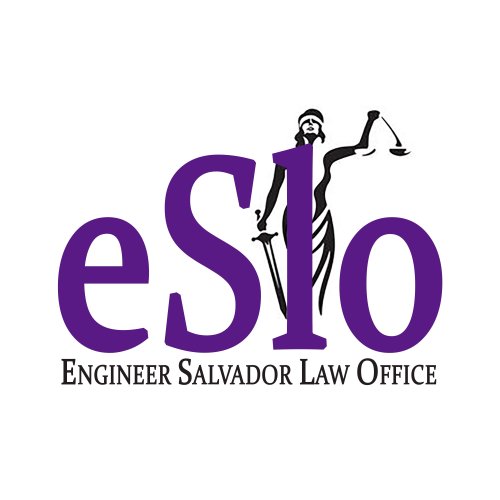Best Conveyancing Lawyers in Cavite City
Share your needs with us, get contacted by law firms.
Free. Takes 2 min.
Free Guide to Hiring a Real Estate Lawyer
List of the best lawyers in Cavite City, Philippines
About Conveyancing Law in Cavite City, Philippines
Conveyancing refers to the legal process of transferring property ownership from one party to another. In Cavite City, Philippines, this process covers several procedural steps and legal requirements designed to ensure a valid and secure transfer of titles and interests in real estate. Conveyancing can involve the sale, purchase, donation, exchange, or inheritance of land or property. Transactions must comply with both national property laws and local government regulations. Since Cavite City is a rapidly developing area, understanding conveyancing law ensures that buyers and sellers make informed and lawful decisions when dealing with real estate.
Why You May Need a Lawyer
Many people consider hiring a lawyer for conveyancing only when disputes or complications arise, but legal assistance is often needed in many situations. Engaging a lawyer can provide critical support in the following scenarios:
- Buying or selling real estate, especially for first time buyers or sellers
- Transferring title between family members, such as through inheritance or donation
- Encountering disputes over property boundaries or ownership
- Processing legal documents and assuring the authenticity of land titles
- Dealing with government agencies for registration of land or property
- Addressing unpaid real property taxes attached to property transactions
- Managing complex transactions involving corporate or foreign property ownership
- Securing legal advice in cases of fraud, double sales, or defective titles
Lawyers help ensure your transaction complies with legal requirements, reducing risks to your investment and protecting your rights as a property owner or buyer.
Local Laws Overview
Conveyancing in Cavite City is governed by both national laws, such as the Civil Code of the Philippines and the Property Registration Decree (Presidential Decree No 1529), and local ordinances. Here are some key aspects of local conveyancing law to be aware of:
- Transfer of Title: The Register of Deeds in Cavite City handles title transfers, requiring the submission of notarized Deeds of Sale or other conveyance documents.
- Taxes and Fees: Transactions are subject to various taxes such as Capital Gains Tax, Documentary Stamp Tax, and transfer fees. Unpaid real property taxes must also be settled.
- Due Diligence: Verifying the authenticity of property titles and ensuring no existing liens or encumbrances is essential.
- Zoning and Land Use: Transactions must comply with Cavite City’s zoning ordinances and land use plans.
- Subdivision and Condominium Laws: Special rules apply for properties within subdivisions or condominium projects, especially regarding developer compliance with the Department of Human Settlements and Urban Development.
- Inherited Property: When transferring inherited property, additional documents, such as an Extrajudicial Settlement of Estate, are required.
Frequently Asked Questions
What is the first step in buying property in Cavite City?
You should conduct due diligence, including verifying the ownership of the property, checking for liens or unpaid taxes, and confirming that the property is not subject to any zoning or legal restrictions.
Who is responsible for paying the transfer taxes and other fees?
By tradition, the seller typically pays the Capital Gains Tax, while the buyer covers the Documentary Stamp Tax, transfer taxes, and registration fees. However, these can be negotiated by both parties.
How long does the conveyancing process take?
The process can take from one to three months, depending on the completeness of documents and the efficiency of government agencies involved in the registration and transfer.
What are common documents needed for a property transfer?
Essential documents include the Deed of Sale, Certificate of Title (TCT or CCT), latest tax declarations, tax clearances, owner's valid IDs, and official receipts for tax payments.
Do I need to register the property after buying it?
Yes, you must register the Deed of Sale and all relevant documents with the Register of Deeds to legally transfer ownership and update the title to your name.
How can I verify if a property title is authentic?
You can request a Certified True Copy of the land title from the Register of Deeds in Cavite City. Compare this with the seller's copy and check for any discrepancies or annotations.
What happens if the property has unpaid real property taxes?
Outstanding property taxes must be settled before or during the conveyancing process. Otherwise, the Register of Deeds will not process the transfer of ownership.
Can foreigners own land in Cavite City?
Foreigners are generally prohibited from owning land in the Philippines, including Cavite City, but may own condominium units under certain conditions.
What should I do if the property is being inherited?
You need to execute an Extrajudicial Settlement of Estate, pay the estate tax, and comply with other legal requirements before transferring the title to the heirs.
Why is legal advice important in the conveyancing process?
Legal advice ensures that all procedures are followed, documents are in order, and your interests are protected. It also helps in avoiding common pitfalls such as fraud, defective titles, or disputed ownership.
Additional Resources
For individuals seeking more information or legal support regarding conveyancing in Cavite City, the following resources can be helpful:
- Register of Deeds - Cavite City: Facilitates property registration and title transfer.
- City Assessor’s Office: Provides information on property assessments and declarations.
- Bureau of Internal Revenue (BIR) - Cavite Branch: Handles tax payments related to property transfers.
- Philippine Regulatory Board of Real Estate Service: Ensures compliance with real estate laws and professional standards.
- Department of Human Settlements and Urban Development: Regulates subdivision and condominium developments.
- Local law offices and accredited notaries public.
Next Steps
If you need legal help with conveyancing in Cavite City:
- Gather all documents related to your property or planned transaction, such as IDs, existing titles, and tax receipts.
- Prepare a list of questions and concerns you want addressed during your legal consultation.
- Contact a reputable lawyer or law office experienced in real estate and conveyancing in Cavite City. You can also consult with the local Integrated Bar of the Philippines chapter for referrals.
- Be cautious when dealing with brokers or agents. Verify their licenses and ensure all transactions and documents are properly notarized and recorded.
- Keep all receipts, contracts, and communication for your reference and protection.
Following these steps will help you navigate the conveyancing process smoothly and safeguard your rights and investments in Cavite City, Philippines.
Lawzana helps you find the best lawyers and law firms in Cavite City through a curated and pre-screened list of qualified legal professionals. Our platform offers rankings and detailed profiles of attorneys and law firms, allowing you to compare based on practice areas, including Conveyancing, experience, and client feedback.
Each profile includes a description of the firm's areas of practice, client reviews, team members and partners, year of establishment, spoken languages, office locations, contact information, social media presence, and any published articles or resources. Most firms on our platform speak English and are experienced in both local and international legal matters.
Get a quote from top-rated law firms in Cavite City, Philippines — quickly, securely, and without unnecessary hassle.
Disclaimer:
The information provided on this page is for general informational purposes only and does not constitute legal advice. While we strive to ensure the accuracy and relevance of the content, legal information may change over time, and interpretations of the law can vary. You should always consult with a qualified legal professional for advice specific to your situation.
We disclaim all liability for actions taken or not taken based on the content of this page. If you believe any information is incorrect or outdated, please contact us, and we will review and update it where appropriate.










